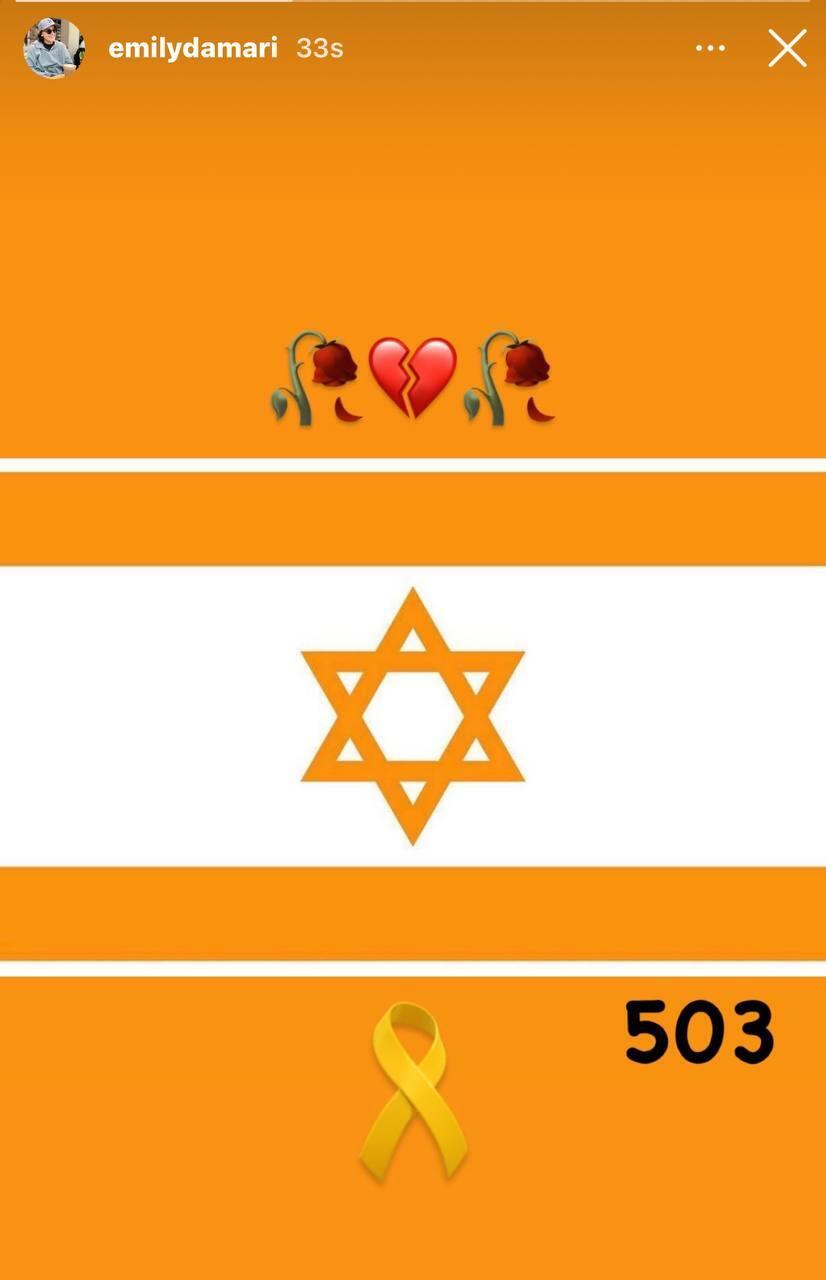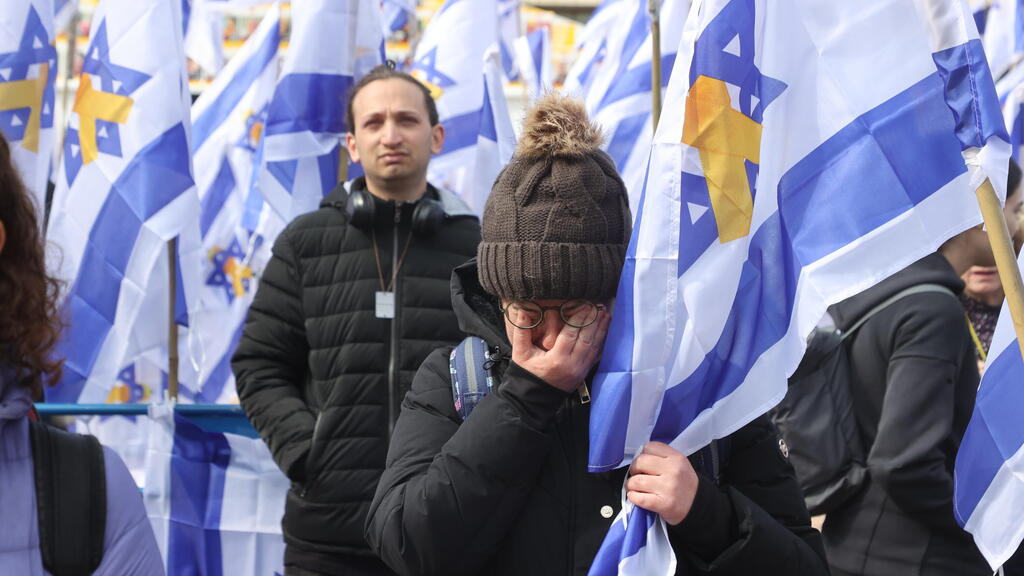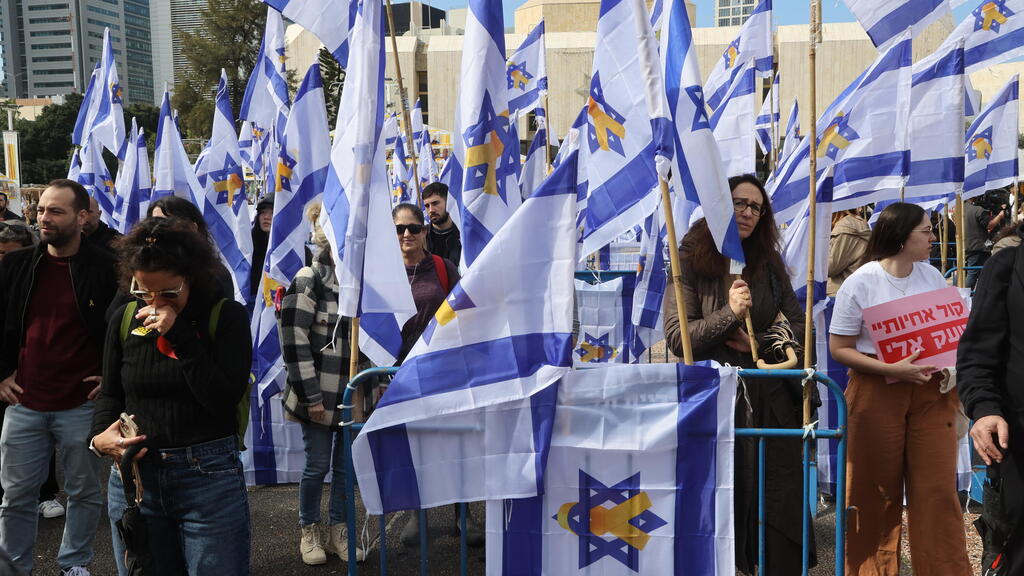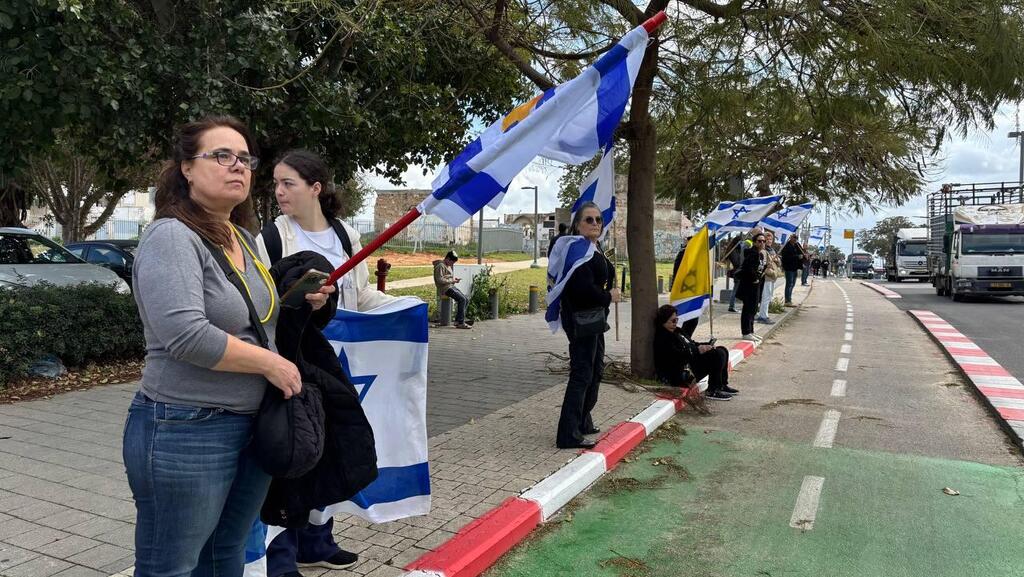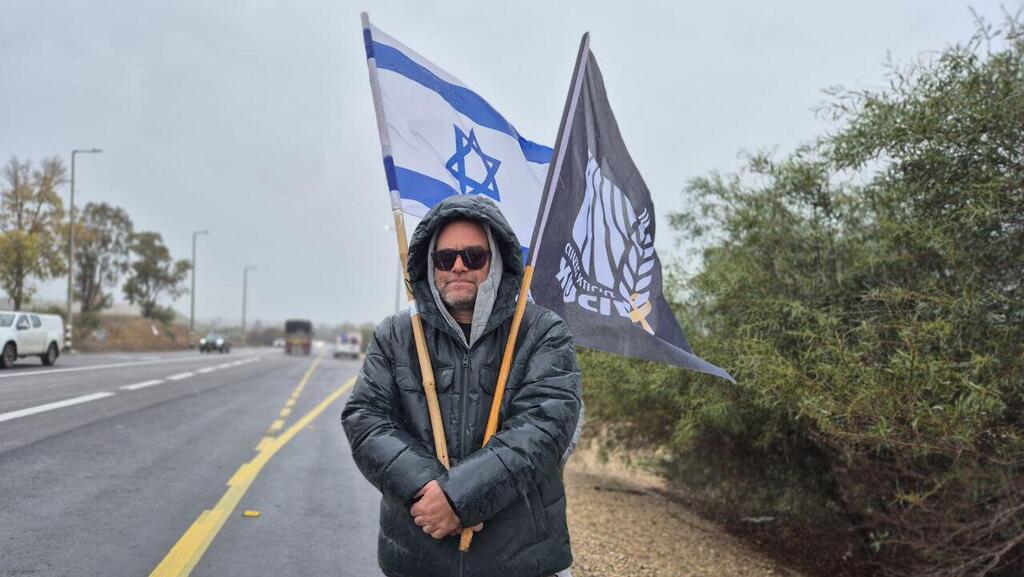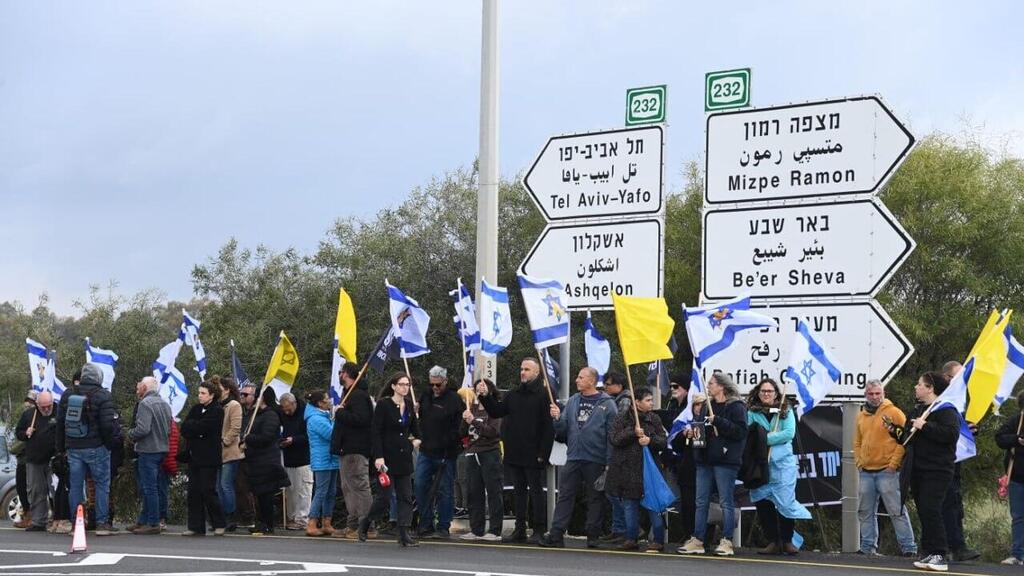Getting your Trinity Audio player ready...
Dozens of residents of Kibbutz Nir Oz gathered Thursday ahead of the return of four deceased hostages: kibbutz members Oded Lifshitz, Shiri Bibas, and her children Kfir and Ariel. The residents wore stickers of broken hearts and stood for a moment of silence.
At the same time, hundreds gathered at Hostages Square in Tel Aviv, and even more hundreds lined the streets and waited for the convoy carrying the four hostages making its way to the Institute of Forensic Medicine in Abu Kabir.
https://www.youtube.com/live/OPH5xFjnZMg
"There’s a lot of sorrow and anger because we wanted to see them alive — we could have seen them alive," said Ilai, a kibbutz resident. "We can’t be certain they’re identified and the family confirms it. The disregard for the families' dignity must stop. It's a sad day — and even today, there are still hostages in hell."
Israelis in the streets ahead of the deceased hostages' return
(Video: Ilana Curiel)
Renana Yaakov, whose sons Or and Yigal were freed in the first hostage deal, added, "People need to be reminded that, at every moment, there are people rotting in tunnels in Gaza. We know what the tunnel looks like, entire lives have passed while they're stuck there. One of my children was there and the thought that others still are doesn’t let me rest."
She expressed anger at the "abandonment — that it took over 500 days to bring them back, and they returned in coffins. It could have been different. It’s sad, frustrating, infuriating. But at the same time, there's relief, acceptance, even hope — because when deceased hostages are returned, it means we can bring back others so they can be laid to rest."
Emily Damari, who was freed after 471 days in Hamas captivity, posted an image in solidarity with the Bibas family.
Inbal and Itay Zeidenberg, also from Kibbutz Nir Oz, described the day as a "difficult, heartbreaking, and shattering day that highlights the scale of the abandonment. There’s always hope, and many hostages still need to return. There are also deceased hostages held there and we're anxiously waiting for them.”
“We have hope because so many people in this country stand with us and agree that human dignity, life, mutual responsibility and the state's duty to its citizens are what truly matter." Itay added, "Being part of this community means being prepared for devastating news every day, every minute."
Get the Ynetnews app on your smartphone: Google Play: https://bit.ly/4eJ37pE | Apple App Store: https://bit.ly/3ZL7iNv
Israelis came to support and encourage each other at Hostages' Square. Unlike the happy Saturdays, when giant screens show news broadcasts and the first photos of the hostages returning home, on Thursday morning the broadcasts went dark and instead showed photos of the hostages who are still in captivity and awaiting their release. Somber music played in the background, and there was soft singing and prayers led by young people from pre-military training schools.
In the center of the square, many flags were placed with the yellow symbol of the kidnapped. People stood and sat around them, some wearing clothes and accessories in the orange color that has become associated with the Bibas family, others wore pins in the shape of Oded Lifshitz's beloved cactus. Lee Tzadik, a resident of Ramat Gan, arrived at the square with orange balloons with the inscription: "We will not forget and we will not forgive."
Nitai Faust from Tze'elim, said:"Everyone is connected here. Families are connected, friends are the same. We studied at the same schools. And Yarden (Bibas) is from Tze'elim."
"The government ministers aren’t here at all," Faust added. "So it's important for us to show that we're here with the hostages, both the living and the dead. It’s clear that we need to recognize the victims of this atrocity. They're part of us. We are them."
Neta Geva from Ein HaBesor and Sarit Kani from Kibbutz Magen stressed: "There’s no choice but to stand here. Oded was a friend. It’s natural for us to come and say we’re sorry. We feel we didn’t scream enough, didn’t do enough. This area is like one big family. Everyone knows everyone. Everyone is together and the absence is enormous. The anger is great — the neglect continues because not everyone is coming home by the end of this week."
Michal Bilia, whose brother-in-law Ariel Bilia was murdered on October 7 while defending his family in Ofakim, also came out to the streets. "It was clear to us that we needed to come and escort the deceased with dignity," she said.
"We wanted to show the families that we're with them in their hardest moments, and in some way, to show Hamas that against their ridiculous and cynical displays, we stand here with pride, with Israeli flags, proving that we're the complete opposite — that we honor our dead and don’t give up on anyone."






